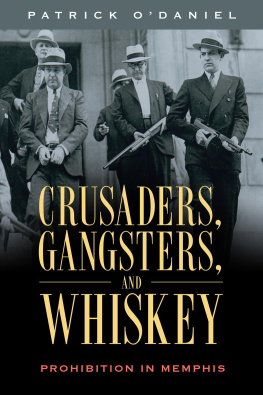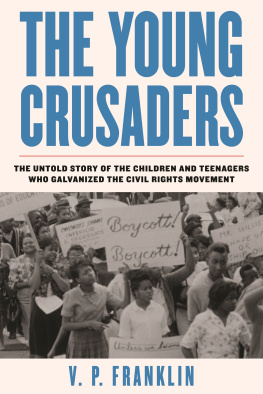PEOPLES LAWYERS
PEOPLES
LAWYERS
Crusaders for Justice in American History
Diana Klebanow
and
Franklin L. Jonas
First published 2003 by M.E. Sharpe
Published 2015 by Routledge
2 Park Square, Milton Park, Abingdon, Oxon OX14 4RN
711 Third Avenue, New York, NY 10017, USA
Routledge is an imprint of the Taylor & Francis Group, an informa business
Copyright 2003 Taylor & Francis. All rights reserved.
No part of this book may be reprinted or reproduced or utilised in any form or by any electronic, mechanical, or other means, now known or hereafter invented, including photocopying and recording, or in any information storage or retrieval system, without permission in writing from the publishers.
Notices
No responsibility is assumed by the publisher for any injury and/or damage to persons or property as a matter of products liability, negligence or otherwise, or from any use of operation of any methods, products, instructions or ideas contained in the material herein.
Practitioners and researchers must always rely on their own experience and knowledge in evaluating and using any information, methods, compounds, or experiments described herein. In using such information or methods they should be mindful of their own safety and the safety of others, including parties for whom they have a professional responsibility.
Product or corporate names may be trademarks or registered trademarks, and are used only for identification and explanation without intent to infringe.
Library of Congress Cataloging-in-Publication Data
Klebanow, Diana.
Peoples lawyers : crusaders for justice in American History / Diana Klebanow and
Franklin L. Jonas,
p. cm.
Includes bibliographical references and index.
ISBN 0-7656-0673-9 (hardcover : alk. paper)
1. LawyersUnited StatesBiography. I. Jonas, Franklin L. II. Title.
KF372.K58 2003
340.092273dc21
[B]
2002066805
ISBN 13: 9780765606730 (hbk)
Dedication
To my parents, Irving and Ruth Klebanow, and my aunt, Ella N. Pinsker,
in loving memory
and for
my nephew, David I. Klebanow, and my students
Diana Klebanow
To my wife, Blanche Jonas, my sons, Sheldon, Oscar,
and the late Larry Jonas,
and my grandson, Zachary Jonas
Franklin L. Jonas
The most famous line about lawyers comes from William Shakespeare. In Henry VI, Part 2, a character in the play, Dick the butcher, speaks the oft-quoted words: The first thing we do, lets kill all the lawyers.
The authors of this study have written (with apologies to Shakespeare) a favorable book about lawyers. We have focused on ten lawyers who fought for the rights of the people and whose primary goal was to make use of the law to fight for social justice.
The book is an outgrowth of our work in American history and political science. We wanted to write about men and women who have earned their place in history because of their accomplishments, and we recognized the key role played by peoples lawyers as crusaders for social change in American society.
The lawyers selected for this book are: Belva A. Lockwood (18301917); Louis D. Brandeis (18561941); Clarence Darrow (18571938); Samuel S. Leibowitz (18921978); Charles Hamilton Houston (18961950); Thurgood Marshall (19081995); William M. Kunstler (19191995); Ruth Bader Ginsburg (1933-); Ralph Nader (1934-); and Morris Dees (1936-).
In deciding which lawyers to include in this work, we drew upon both our professional and personal values. The lawyers discussed in this book reflected the professional standards and personal attributes that we deemed essential to this kind of study: they were interesting because of their eventful careers; they were intriguing and admirable in their own right; they had the fortitude to challenge the inequities in the status quo; they took on cases and championed causes that had a lasting impact upon American life; and they maintained a faith in the ability of the legal system to improve peoples lives and create a more just society.
Their accomplishments were not always apparent on a case-by-case basis, but the sum total of their work led to fundamental changes in this country. In particular, they championed the rights of forgotten members of society, including the poor, the powerless, and the marginalized.
The majority of these attorneys came from modest backgrounds, but they drew on the support system provided by their family members. All of them became highly accomplished and successful in their profession. Four (Brandeis, Leibowitz, Ginsburg, and Nader) were first-generation Americans; one (Marshall) was the grandson of a slave; three (Lockwood, Darrow, and Dees) were the offspring of struggling farmers; and three (Brandeis, Marshall, and Ginsburg) reached the United States Supreme Court.
These ten lawyers dealt with some of the most important issues before the country in the nineteenth and twentieth centuries. Lockwood championed world peace and the rights of women and Native Americans; Brandeis pioneered in the struggle against corporate privilege; Darrow was the attorney for the defense in several of the most controversial trials in Americas history; Leibowitz fought for the indigent Scottsboro defendants accused of rape; Houston distinguished himself in court and trained a whole generation of black attorneys; Marshall took up the mantle of Houston in seeking to obtain and enforce equal rights; Kunstler became a household name in his defense of anti-Vietnam War protesters in the Chicago Seven trial; Ginsburg stood as the foremost advocate against discrimination based on sex; Nader led the fight for protection of the American consumer; and Dees (a millionaire turned lawyer) helped to dethrone the Ku Klux Klan as a powerful force in Southern society.
The book includes accounts of the most important cases handled by these lawyers. We also focus on the forces in their lives that shaped their passionate commitment to social justice, as well as the strengths upon which they relied to overcome the obstacles in their paths. The achievements of these men and women in the battle against entrenched interests were due not only to the spirit of the times, but to their determination to succeed, forcefulness of their arguments, and their sheer personal courage.
Each of the ten chapters in this book consists of four parts: a chronology of important events; a biographical section covering the lawyers life and accomplishments; an account of the lawyers most significant cases; and an annotated bibliography.
It was an inspiring book to write at this particular moment in history. At a time when the nation needs to rekindle its faith in its past and gain confidence in its ability to face the challenges of the future, the authors hope that this book will be a guide to the kinds of victories that can be achieved in the countrys perpetual quest for social justice.
Diana Klebanow wrote the chapters on Darrow, Houston, Marshall, Kunstler, and Dees. Franklin L. Jonas wrote the chapters on Lockwood, Brandeis, Leibowitz, Ginsburg, and Nader.
Diana Klebanow wishes to express her appreciation to Annette Kalin, who typed her portion of this manuscript. In addition to being a cherished friend, Ms. Kalin showed great skill, unending patience, and graciousness in helping with this book.












